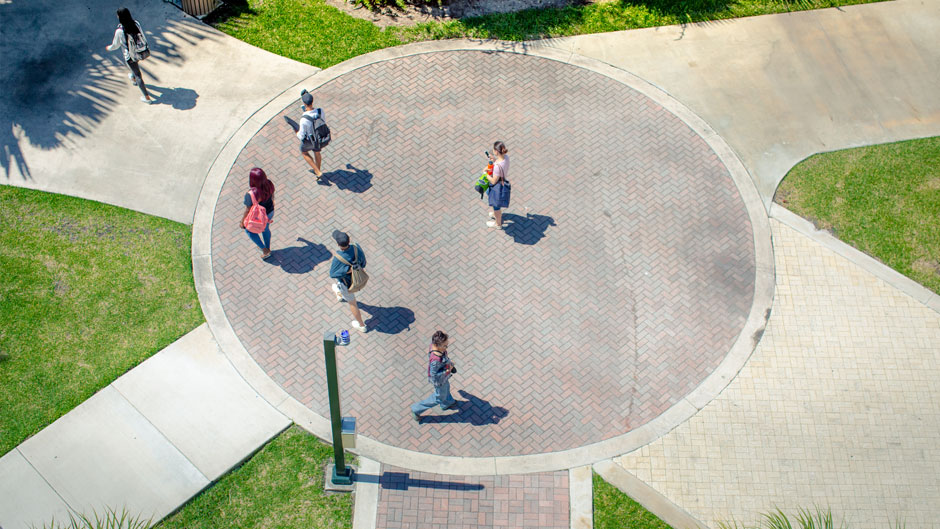Midway into the fall semester, many students have settled into a daily routine, experienced fresh challenges, and are adjusting to their new environment. In addition to those trials, many are adapting after pandemic-induced isolation—adding yet another layer of hurdles to overcome in a college setting.
Rene Monteagudo, executive director of the University of Miami Counseling Center, noted that the stressors around this time of the semester can vary for first-year students and returning students. But, fortunately, leaders at the University are highly trained and continually acquiring new tools and methods to assist students through their bouts of anxiousness or concern.
“Social anxiety could be creeping up mid-semester,” said Monteagudo. “I can totally see people kind of being lonely during this time, but it’s important to understand that some connections may not have been made yet.”
For students who are still searching for those networks, Monteagudo suggested joining a student group. Or, if that isn’t a good fit, they should visit the Butler Center for Service and Leadership to find out about volunteer opportunities that could lead to meeting peers who are like-minded.
“The Butler Center can help students get connected with those who may have a similar interest in terms of different types of volunteering activities,” Monteagudo added. “I also recommend making sure students are taking care of themselves, meeting their basic needs like eating and sleeping properly and engaging in physical activity, like cardio to work off some of that stress.”
Equipped with psychologists, clinical social workers, mental health counselors, psychiatrists, and psychiatric nurses, the Counseling Center provides high-quality counseling, outreach, and psychoeducation around the clock. Students who may be dealing with depression, anxiety, difficulty adjusting to campus life, or relationship issues can get help. Monteagudo and his staff offer confidential communication in-person and in group or individual settings.
In addition to the Counseling Center, the Dean of Students Office is a great resource for students to utilize when managing complex circumstances on campus.
“This is not the trouble office,” said Ryan Holmes, associate vice president for student affairs and dean of students. “A lot of people, specifically students, may not want to contact us because they think that somebody is going to be in trouble, but support is primary.”
Holmes and his team want students to know that no matter the circumstances, the Dean of Students Office is well-appointed to have the conversations that will validate and help every student on campus in getting what they need—including those who may be struggling with substance abuse issues. Monteagudo and Holmes both realized that many students may be feeling the weight of college post-pandemic, based on data and discussions at recent conferences they’ve attended. And they want to remind students that time is not against them; resources are available right here at the University.
“You are enough, and you are the only you. And we need you to be healthy and whole,” said Holmes. “If we’ve had a pandemic or not, you’re not running out of time to make an impact and you’re also not running out of time to get what the University campus has for you.”
In addition to classroom or off-campus related matters, Tiffani Idol understands that for a large demographic of the student body population, Housing and Residential Life is where many commonly find their sense of belonging and spend a majority of their time.
Idol, director for residential life and education, said that new resources have been implemented this semester to increase weekly programming for all six residential areas.
“For example, every week, Pearson Residential College offers social or educational programming on Tuesday night, and it’s an open invitation for those residents or friends of a resident to come downstairs to hang out, grab food, or interact with their faculty advisor,” she said.
Idol and her department have several layers of support for students who live on campus to be successful at the University in several different ways—not just academically but also socially, interpersonally, and emotionally.
“We are invested in every sense of their well-being and ultimately their academic endeavors,” she said.
For more resources, including scheduling an appointment, visit the Counseling Center, Dean of Students Office, Butler Center for Service and Leadership, or Housing and Residential Life websites.

